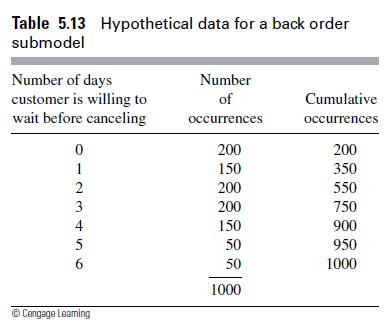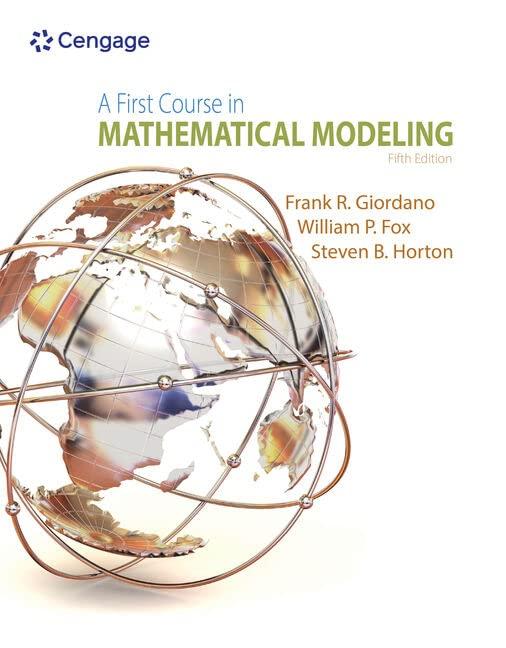In the case in which a gasoline station runs out of gas, the customer is simply going
Question:
In the case in which a gasoline station runs out of gas, the customer is simply going to go to another station. In many situations (name a few), however, some customers will place a back order or collect a rain check. If the order is not filled within a time period varying from customer to customer in a probabilistic fashion, the customer will cancel his or her order. Suppose we examine historical data for 1000 customers and find the data shown in Table 5.13. That is, 200 customers will not even place an order, and an additional 150 customers will cancel if the order is not filled within 1 day.
Table 5.13

a. Construct a Monte Carlo simulation for the back order submodel. If you have a calculator or computer available, test your submodel by running 1000 trials and comparing the number of occurrences of the various cancellations with the historical data.
b. Consider the algorithm you modified in Problem 1. Further modify the algorithm to consider back orders. Do you think back orders should be penalized in some fashion? If so, how would you do it?
Data from problem 1
Modify the inventory algorithm to keep track of unfilled demands and the total number of days that the gasoline station is without gasoline for at least part of the day.
Step by Step Answer:

A First Course In Mathematical Modeling
ISBN: 9781285050904
5th Edition
Authors: Frank R. Giordano, William P. Fox, Steven B. Horton





